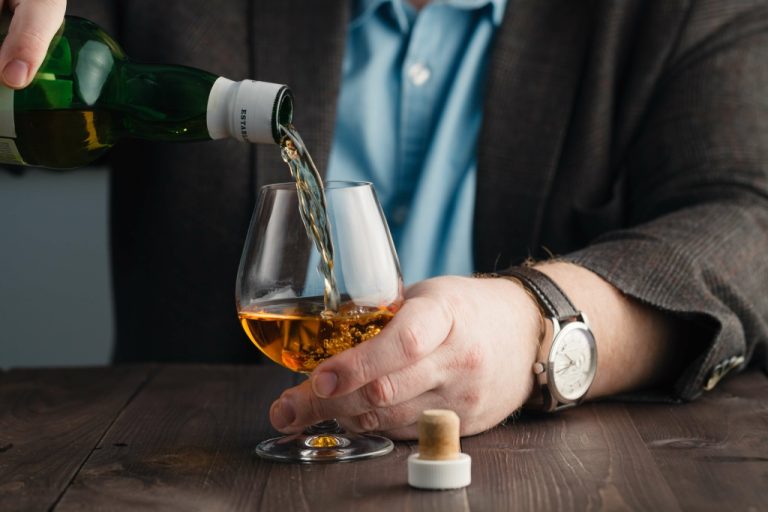This helps address both your addiction itself, as well as any underlying mental illness that may be contributing to your habits of use. If you want to determine whether or not you have a is wine addictive, trying to stop your alcohol use may help you figure this out. In many cases of addiction, trying to stop drinking wine will cause you to experience alcohol withdrawal. Regardless of other people’s drinking choices, once you have formed an alcohol dependence, turning down that extra glass of wine may feel impossible to you. However, drinking alcohol every day can be a sign of alcohol use disorder (AUD), or lead to other health problems, especially if you’re drinking more than a single glass of wine every night. Alcohol withdrawal symptoms may start as early as eight hours after a person’s last drink and can last for several weeks.
- Wine connoisseurs have a wealth of knowledge and understanding about the wines they drink.
- Are you agonizing over each slow sip your friends finish off at dinner, just hoping that they polish off that glass so you can finally get a refill of your own?
- Excessive alcohol consumption on a regular basis is another key indicator that you may be struggling with a wine addiction.
- You may also be critical of or annoyed by someone else’s decision to stop drinking, as you may feel bad getting another drink yourself.
Something that throws everything balance-related into a tailspin is that emotional maturity and addiction are two separate concepts. The more you’re using, the more you’re acting out, so there’s this paucity of emotional development, if you will. The long and the short of it is you cannot maintain functional relationships while you’re using. You can’t have balance without love, friendship, and caring in a functional way. I’ve done a lot of work on myself so that I can maintain and restore relationships.
Why Does Alcohol By Volume Matter?
Developing healthier strategies for relaxing is a great way to avoid developing this bad habit. A walk, a cup of tea, a talk with a friend, a good book, or a hot bath, are all better ways to cope with stress and to relax. If drinking wine does get out of hand and becomes difficult to control, it may be best to keep it out of the house entirely. And, of course, if this and other self-help strategies don’t work, and wine addiction symptoms persist, it is essential to seek out professional help. Fighting any kind of addiction is nearly impossible to do alone, but mental health and addiction specialists can provide assistance.
- One advantage of this is that I might drink less on nights out, thereby avoiding a repeat of last year’s embarrassment.
- When consumed in moderation, wine may be beneficial to human health.
- Lower cost wines are typically younger and can still provide a pleasant drinking experience, but they will not have the same complexity of flavors as an aged wine.
Occasional wine consumption causes a blood pressure spike, but this tends to wear off. However, consistent wine binges can lead to chronic high blood pressure. If you drink more than one or two drinks per day, you might consider seeking professional help for substance use. According to the National Institute on Alcohol Abuse and Alcoholism (NIAAA), excessive drinking occurs when a man has more than four drinks a day or a woman has more than three drinks a day. For those seeking addiction treatment for themselves or a loved one, the addictionresource.com helpline is a private and convenient solution. Calls to any general helpline (non-facility specific 1-8XX numbers) for your visit will be answered by American Addiction Centers (AAC).
Can You Be Addicted To Just Wine?
Our substance abuse treatment centers can help you live a healthy, alcohol-free life. Wine is often thought of as a classy drink, something to be tasted, sipped and enjoyed over dinner. But like other alcohols, too much can lead to a wine addiction and as many potential health consequences as any other drink. Not everyone who drinks alcohol will develop an addiction, but drinking too much even without addiction can become problematic. There are some positive health benefits of wine, which is made solely from grapes and the natural yeast found on them, but there are also risks. One of these is an addiction, and that can lead to many more issues.
- The best place to start is to speak with a trusted medical professional who is familiar with the symptoms and dangers of wine addiction.
- Research has shown that there are some health benefits you gain when you drink wine.
- Fortunately, there are many ways you can tell if you may be dependent on wine.
- Although it can be hard to spot, the abovementioned signs indicate addiction to wine.
- This was a 2011, and, like many Texier wines that evolve for years, it was just rounding into form.
A lot of people drink wine nowadays, but drinking at odd times is more of an addiction. For instance, if a person is drinking wine early in the morning, or at work, or in a meeting. When it comes to wine, a standard drink usually contains around 11.7 grams of pure alcohol, or around 10 ml of pure alcohol. This equates to one glass of full-strength wine, so if you are consuming wine at a rate of two standard drinks per hour you will be drinking two glasses per hour. Wine addiction is a serious problem, and it is important to recognize the signs and symptoms, and to seek help in order to prevent further deterioration of the individual’s physical and mental health. With the right care and support, it is possible to break free from wine addiction and lead a healthier and more fulfilling life.
Wine Addiction: 9 Signs You May Have a Problem
Are you agonizing over each slow sip your friends finish off at dinner, just hoping that they polish off that glass so you can finally get a refill of your own? Can you not understand how your wife refuses a glass of wine when you’ve already had two? Does it irritate you when someone takes a few drinks and then leaves a half-full glass behind?

Often that sense of comfort is felt through nerves and sinews tied directly to childhood. Wine generally works on another level, liberating knots of feelings derived from more adult experiences. It would interest you to know that teenagers who begin abusing wine at a tender age, are likely to be addicted to wine before they become adults. Addiction is when a person can’t do without that thing, but lies on it every time.
How Much Alcohol Is In Wine?
But if you find yourself back to the bottle in a few days, you’ve learned that you can’t control your drinking. But many of us have been there before, and we’re here for you now. People enjoy drinking because these effects can be pleasurable, but it’s important to understand the potential short-term and long-term consequences of alcohol consumption. A standard bottle of wine contains 750 ml, which is about 25 ounces of alcohol. In the United States, a standard glass of wine is about 5 ounces. However, this number can vary across different brands and types of wine.


